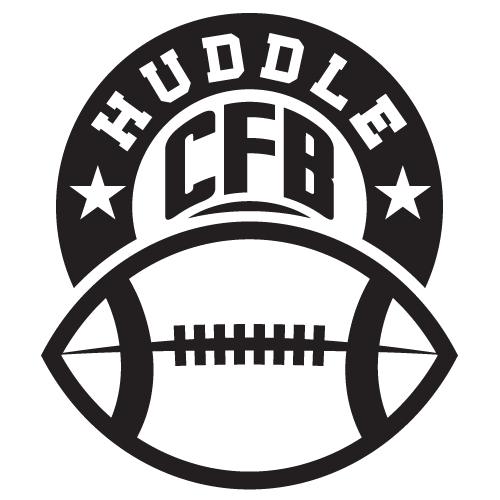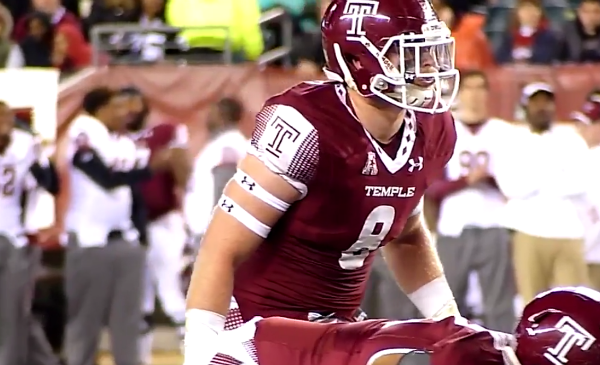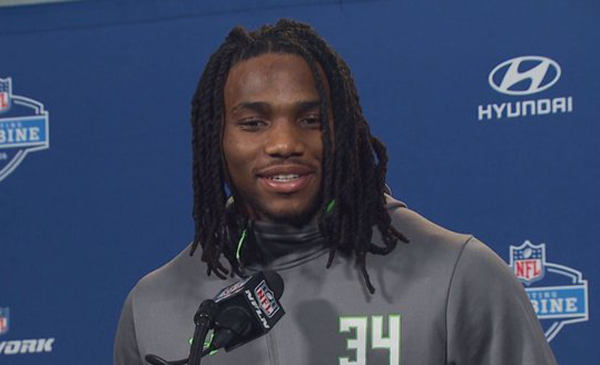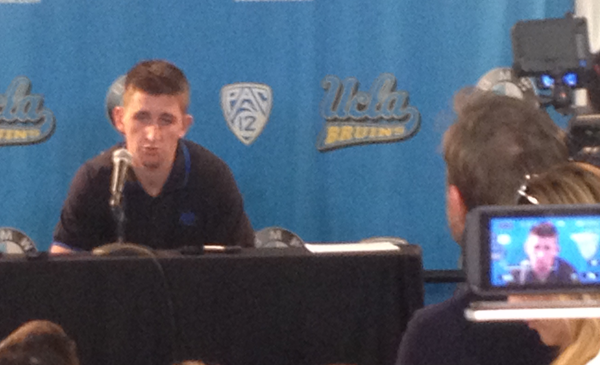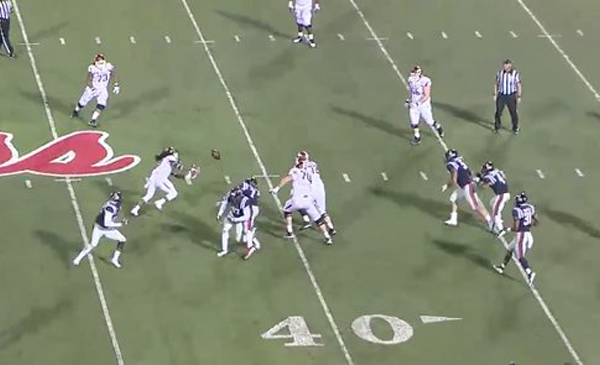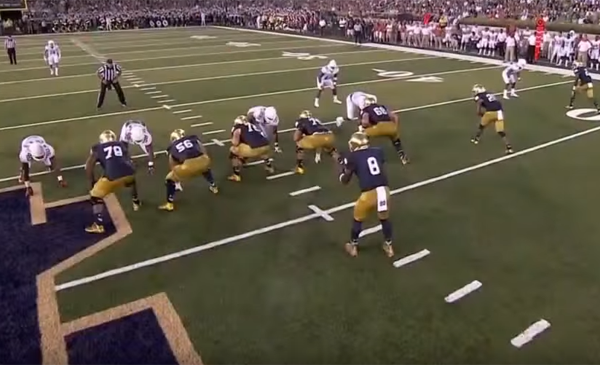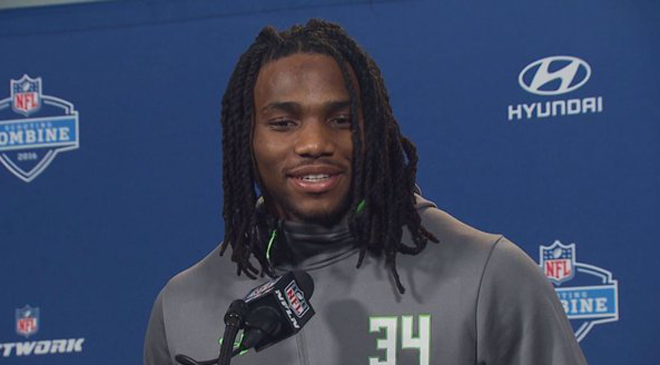Popular opinion dictated both Myles Jack and Jaylon Smith were first-round talents well before either qualified for the NFL draft. Both tumbled out of the first 31 picks Thursday, however, the result of injuries sustained their final season in college football.
A simplistic interpretation of cause-and-effect dictates, then, that had either Jack or Smith sat out his junior season, he wouldn’t have sustained injury and thus been selected in the first round.
Ergo, elite prospects approaching their last season before meeting the NFL’s age requirement should sit out — especially bowl games, since they’re “meaningless.”
Nice of the dirtbag who put Smith in harm's way for a completely meaningless bowl game to weigh in. https://t.co/kKRF4kNfPx
— Bart Hubbuch (@BartHubbuch) April 29, 2016
I feel for Myles Jack and Jaylon Smith. I also posited teams passing on Jack are incurring more risk than the supposed risk of selecting him.
But then, I’m not in an NFL franchise’s front office, so it’s much easier for me to suggest without my job on the line.
Likewise, suggesting top-tier college juniors wait out the fall to avoid similar injuries is remarkably easy from the comfort of a desk chair. I can’t envision Jaylon Smith calling a game against Ohio State meaningless, even in spite of the misfortune he endured.
Injury’s a byproduct and inherent risk of a violent sport. Players and coaches can mitigate the risk, as can rules and technological advancements, the latter now being at the forefront of the concussion crisis.
But there will always be some risk. The only way to completely remove the risk is to not play at all — hence growing sentiment top-level players should sit out bowl games, if not entire seasons.
As Texas A&M’s Myles Garrett and LSU’s Leonard Fournette grew into superstars last season, suggestions either should skip their junior seasons reverberated around the echo chamber. It’s an asinine notion more easily refuted than supported.
Remove any personal desire to perform, or sense of commitments to teammates from the equation. Even at its most basic level, it’s misguided.
Jack’s college coach Jim Mora made a comment this week on a different subject, but it’s one that applies in this case: “Practice is great, but when you get thrown in competition, that’s where you see the biggest gains in terms of improvement.”
Sitting out simply isn’t pragmatic. The layoff from the end of a sophomore season to the first preseason game of a rookie campaign would be 21 months. No workout regimen can compensate for nearly two years not playing the game.
Furthermore, the circumstances causing Jack and Smith to slide are unfortunate, but they’re also the exception more than the rule.
Some players’ stock rises in their final year of college, Carson Wentz being this draft’s most notable example. A monster season also helped springboard DeForest Buckner from fringe first-round prospect to the No. 7 overall pick.
By and large, though, Thursday’s first round matched mock drafts published a year ago.
Ezekiel Elliott erupted onto the national scene with his otherworldly performances in the College Football Playoff. He played his final season at Ohio State without injury.
Ditto Jared Goff at Cal, long considered the top quarterback option of the 2016 draft class.
Joey Bosa to Jalen Ramsey, Jack Conklin to Vernon Hargreaves, more slam-dunk prospects navigated their final season without injury. Such is the case every year.
Moreover, an elite prospect is no more at risk his final college season than earlier in his career. An example from this draft class is Ole Miss offensive lineman Laremy Tunsil, deemed a future No. 1 pick before he ever played a down in the SEC.
Tunsil sustained an injury in the 2014 Peach Bowl, which may well have hurt his draft stock had he been eligible for the 2015 draft. He recovered and played some of the 2015 college campaign, and his stock was unscathed — until someone posted video of him smoking pot from a gas mask, anyway.
But hey, maybe if Tunsil sat out his entire Ole Miss career, he never has the fight with his stepdad, which spares him suspension, and maybe the weed video never sees the light of day.
Any earnings Myles Jack or Jaylon Smith may lose as a result of their draft-weekend slides should be compensated. Pay-for-play is one area in which the exception deservedly drives the narrative, and I would like to see a sensible plan that cuts in the revenue-generating athletes more, injured or not.
Perhaps that means an annuity for the elite-level prospects not yet eligible for the draft, funded in part by the NFL. A safeguard more reliable than the insurance policies top prospects purchase would alleviate some problems.
Sitting out just isn’t that safeguard.
